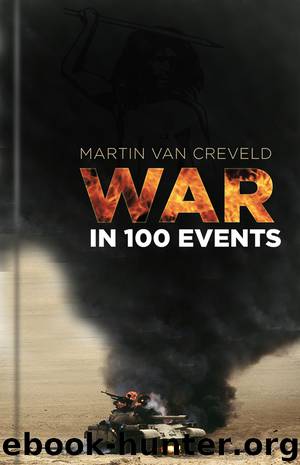

Now the Israeli army has not by any means been the worst of the lot. So here is a dilemma which others have suffered before us, and for which as far as I can see there is simply no escape. if you let him kill you, then you are an idiot. If you are strong and fighting the weak, then if you kill your opponent then you are a scoundrel. The problem is that you cannot prove yourself against someone who is much weaker than yourself. they want to serve their country and they want to prove themselves. In a TV interview in 2002, he expressed doubts as to the ability of the Israeli army to defeat the Palestinians: In addition to writing on military history, van Creveld also comments, often pointedly, on contemporary societies and politics. Van Creveld's Supplying War: Logistics from Wallenstein to Patton is now included on the list as well. The book's significance is attested to by the fact that until the middle of 2008, it was included on the list of required reading for United States Army officers, and (with Sun Tzu and Clausewitz) the third non-American entry on the list. Consequently, it is imperative that nation states change the training of their armed forces and rethink their weapon procurement programs. Moreover, in his view, armies consistently train and equip to fight a conventional war, rather than the LICs they are likely to face. The book argues that we are seeing a decline of the nation-state, without a comparable decline in organized violence. Van Creveld notes that many of the wars fought after 1945 were low-intensity conflicts (LICs) which powerful states ended up losing. Why war is fought - the motivations of the individual soldier.What war is fought for - whether to enhance national power, or as an end to itself.



In this treatise of military theory, van Creveld develops what he calls the non-trinitarian theory of warfare, which he juxtaposes to the famous work by Clausewitz, On WarĬlausewitz's trinitarian model of war (a term of van Creveld's) distinguishes between the affairs of the population, the army, and the government. The 1991 book The Transformation of War (UK: The Future of War) was translated into French, German (New German edition in 2004), Russian, and Spanish.


 0 kommentar(er)
0 kommentar(er)
